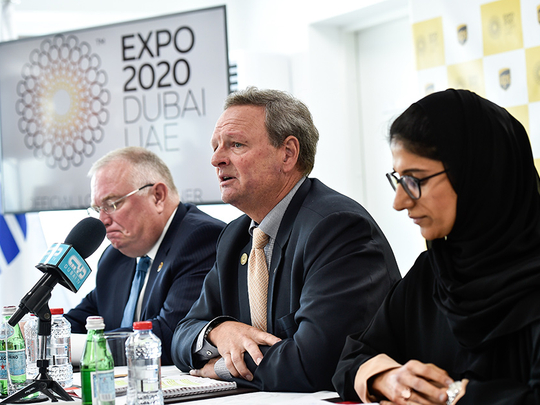
Dubai: US-based logistics giant UPS hopes to springboard its Middle East operations through its role as logistics partner to Dubai Expo 2020.
Expo 2020’s Senior Vice-President for Legacy Development and Impact, Marjan Faraidooni, announced at a press conference at the Expo 2020 offices that the project would involve transporting 9,000 tonnes of goods a day to 27,000 square metres of warehousing at the Expo site.
UPS International President Jim Barber said UPS would hire 1,000 people for the task, on top of the 427 it already employs in the UAE, and he hoped the majority of those new employees would remain with the firm after the event as it sought to fill a gap in its global reach.
Barber admitted that UPS had in the past regarded its Europe, Middle East and Africa region as primarily European — he said that as head of that region before taking over presidency of the firm, he’d spent only a day in the Middle East and Africa.
“We left a lot of the map to [competitors], and it’s time for us to some in,” he told journalists.
Later, in an interview with Gulf News, he said the timescale — to have the warehousing up and running by September 2018 — was tight. “Once you sign a deal like this you think you have all day to get moving — actually, you don’t. You’re behind from the moment you sign the deal.”
When UPS won the logistics contract for the London Olympics in 2012, they relied heavily on their existing London operations, supplementing them with contingency staff.
“Here, I am really looking forward to growing this business now,” Bamber said. “The perfect fit is to take UPSers that are already here — we’re don’t have that many yet, but they’ll start to start to grow and come in, but the business would start to expand here as well as the whole region.
“I think one of the metrics we’ll hold ourselves to is not flexing down afterwards, to grow the business and keep them, and that’s what I think we’ll do.”












